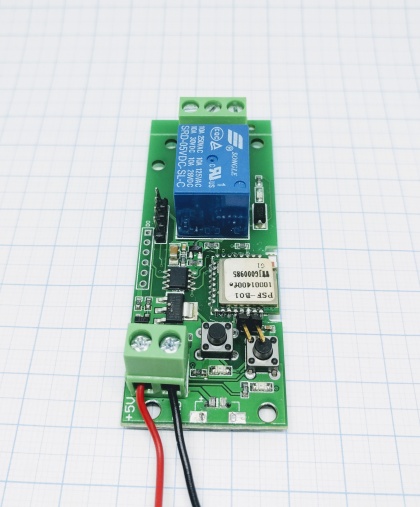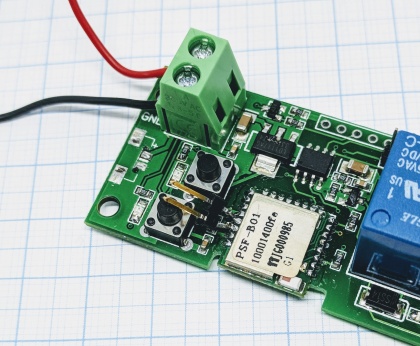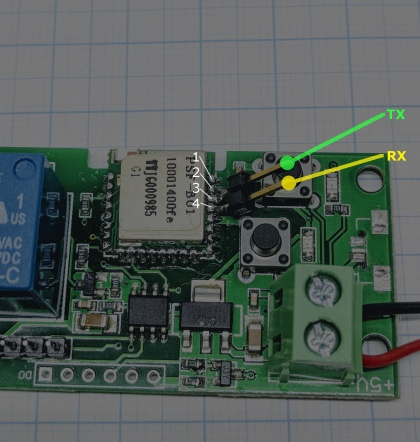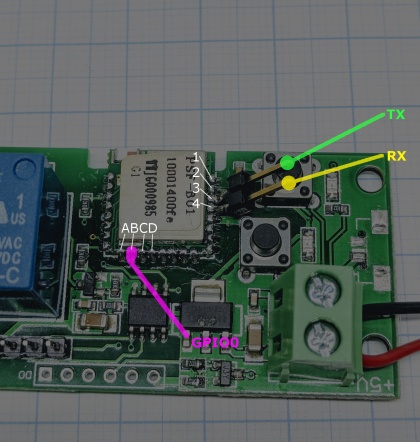Difference between revisions of "Sonoff DIY 1ch"
Jump to navigation
Jump to search
Grovkillen (talk | contribs) |
Grovkillen (talk | contribs) |
||
| (2 intermediate revisions by the same user not shown) | |||
| Line 12: | Line 12: | ||
* GPIO's broken out/available to free use: None | * GPIO's broken out/available to free use: None | ||
* GPIO tied to onboard hardware: 12 (Relay 10A@230VAC), 13 (LED red) | * GPIO tied to onboard hardware: 12 (Relay 10A@230VAC), 13 (LED red) | ||
| − | * Power supply information: | + | * Power supply information: 5VDC (USB or wire in) |
* Antenna: onboard PCB antenna | * Antenna: onboard PCB antenna | ||
| Line 28: | Line 28: | ||
'''Power''' | '''Power''' | ||
| − | 5V | + | 5V <--> VCC (input power, also usb can be used) |
| − | GND <--> GND (input power) | + | GND <--> GND (input power, common ground is preferred) |
In order to get the unit in flash mode the GPIO-0 needs to be LOW. You find GPIO-0 on the second pin (marked "B" in picture below). Connect that pin to GND. | In order to get the unit in flash mode the GPIO-0 needs to be LOW. You find GPIO-0 on the second pin (marked "B" in picture below). Connect that pin to GND. | ||
[[File:SonoffDIY1ch002.jpg|420px]] | [[File:SonoffDIY1ch002.jpg|420px]] | ||
Latest revision as of 23:06, 18 December 2017
Introduction
The Sonoff DIY 1ch is a relay unit. It is based on the ESP8285 chip and can control one relay.
Hardware
- ESP chip version: ESP8285
- Flash size: 1M
- Onboard USB-TTL converter: No
- GPIO's broken out/available to free use: None
- GPIO tied to onboard hardware: 12 (Relay 10A@230VAC), 13 (LED red)
- Power supply information: 5VDC (USB or wire in)
- Antenna: onboard PCB antenna
Wiring/flashing
A programmer is needed to flash this device.
Programmer ESP TX <--> RX (fourth pin seen in picture above) RX <--> TX (third pin seen in picture above) Power 5V <--> VCC (input power, also usb can be used) GND <--> GND (input power, common ground is preferred)
In order to get the unit in flash mode the GPIO-0 needs to be LOW. You find GPIO-0 on the second pin (marked "B" in picture below). Connect that pin to GND.



